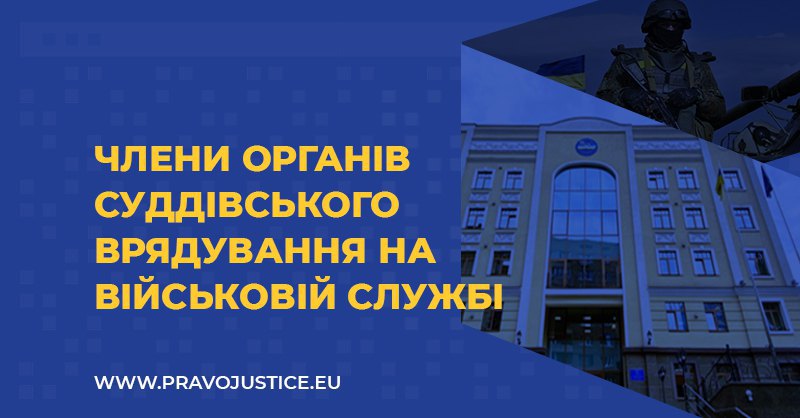Members of Judicial Governance Bodies in Military Service: Risks for the Judicial Reform in Ukraine

Due to the fact that one of the members of the High Council of Justice is in military service, there is a possibility that the decisions of this body may be called into question in the future. How to solve the problem?
Let us remind that, at the beginning of January 2023, the XIX Extraordinary Congress of Judges elected eight members of the High Council of Justice according to its quota. It allowed unblocking the operation of the HCJ after almost a one-year break. As of the beginning of May 2023, there are 17 members of the HCJ in place, most of whom are judges.
Olena Kovbii, judge of the Kherson District Administrative Court, is one of the HCJ members, who was elected by the XIX Extraordinary Congress of Judges. After the beginning of the full-scale military invasion of Ukraine by the Russian Federation, she voluntarily mobilized to the ranks of the Armed Forces of Ukraine. Besides, currently Judge Kovbii is also officially on temporary assignment in the Odesa District Administrative Court, where she was previously transferred by order of the President of the Supreme Court due to the occupation of the Kherson region.
It should be noted that, in accordance with the existing procedure, judges who are elected to the High Council of Justice, while exercising their powers, shall be temporarily seconded from the courts by orders of court presidents. However, the document on the secondment of Judge Kovbii never reached the HCJ, as she had previously been released from her judicial duties in order to do military service.
Moreover, the existing legislation does not provide for the possibility of terminating the contract in case of being appointed as a member of the HCJ as a constitutional body. In practice, Judge Kovbii was actually never enrolled in the HCJ staff list and does not receive the salary as an HCJ member. At the same time, she took part in the meetings of the HCJ and, accordingly, in voting for certain decisions until the middle of April 2023. Then, Judge Kovbii was forced to temporarily leave her job in the HCJ, as it was impossible to combine it with her service in the Armed Forces of Ukraine.
Thus, we are facing a unique situation where one person simultaneously combines the duties of HCJ member, judge, and servicewoman. It is obvious that this case requires some legislative solution, because, on the one hand, a HCJ member cannot fully fulfill her duties (she cannot be enrolled to the staff list of the HCJ), and on the other hand, there is a risk of improper operation of the HCJ as a collegial body and jeopardizing the legitimacy of its decisions.
At the beginning of February this year, the Verkhovna Rada of Ukraine registered the draft law No. 8409, which would allow servicemen terminating their contracts during martial law in connection with the election as an HCJ member. Unfortunately, the draft law is still pending before the parliamentary committees.
On the one hand, it can be stated that not only the HCJ is facing such a situation, but also other central executive authorities. It may seem that the extension of the law may artificially create a loophole for avoiding military service, however, the situation with the HCJ is truly unique and requires an ad hoc solution.
Moreover, it is proposed to finalize the relevant draft law taking into account the fact that, alongside the HCJ, a similar situation may also affect the High Qualification Commission of Judges. It is worth noting that among the 32 HQCJ candidates, there are four who are active servicemen. Recently, Roman Kuibida, candidate to the HQCJ, had to stop participating in the competition because of the military service.
HCJ- and HQCJ-related cases are unique. Unlike other central authorities, the former remained inactive for more than a year, while the latter – for three years. Besides, , their re-launch is part of the recommendations of the European Commission to preserve Ukraine’s status as a candidate for EU membership in terms of implementing the judicial reform; thus, if solving of the outlined issues is delayed, it would put at risk our European prospects.
The text was first published in the blog of the EU Project Pravo-Justice on LB.ua